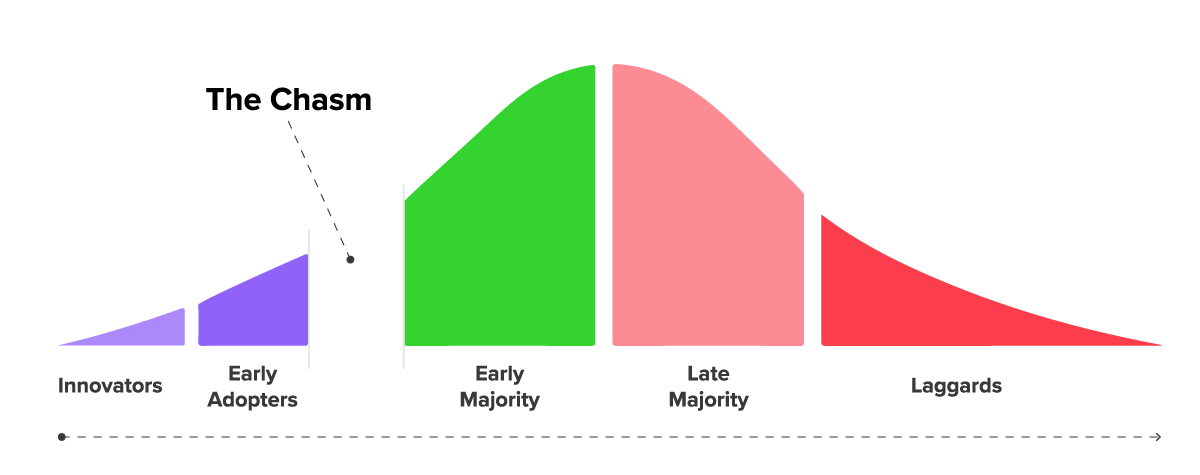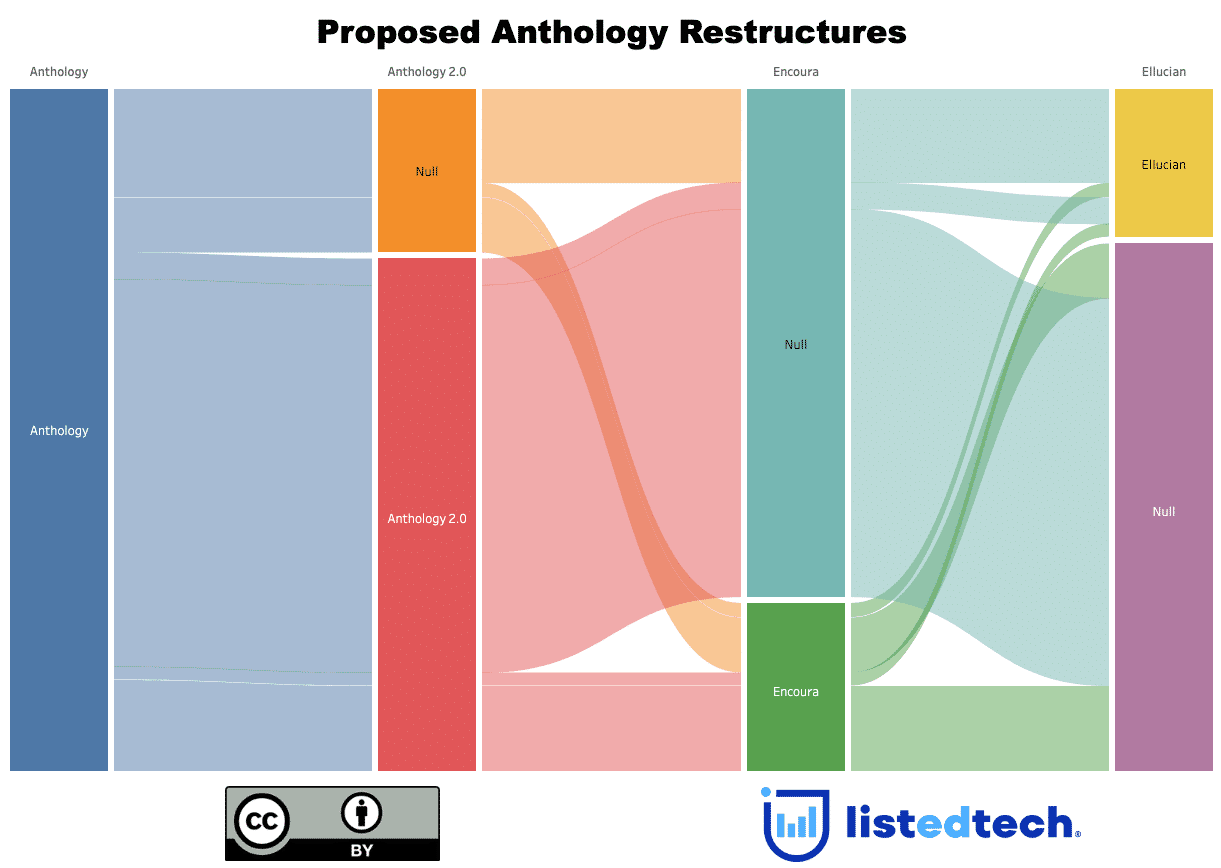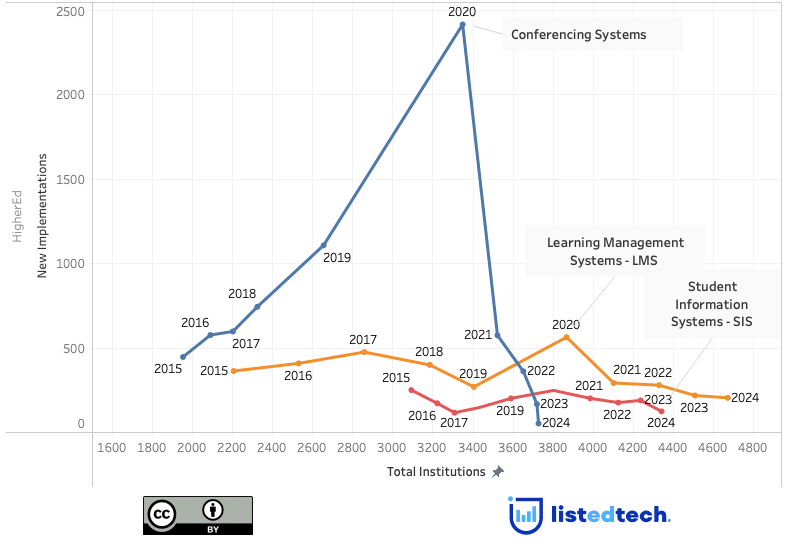
Overheard recently at an edtech conference, “The most positive thing to come out of the advancements in generative AI in higher ed is that we don’t have to hear about the great potential for blockchain as much.” Certainly, generative AI has already made positive contributions to higher ed, but the point is that talk is cheap, and there’s an awful lot of talk regarding AI and machine learning.
Much of the conversation around the potential for impact is focused on its implication for the often poorly defined and overused but incredibly important buzzword: student success. Examples abound:
- Smart chatbots help students learn and navigate the institution.
- Simplified and streamlined data analysis that will quickly identify students in trouble and even get them the proper support they need when they need it.
- Course selection tools that will increase retention.
And the list goes on.
What needs to be discussed is the potential for AI to reduce administrative workloads and, thus, operational costs and complexity. Within a given college administration, hundreds and even thousands of administrators are a part of delivering core services across the student life cycle but only sometimes actually working with students. Within this piece, we explore how widely used solutions and their users could benefit from advancements in AI and some of the challenges they face in adoption.
High Potential Impact Areas: The LMS and Enterprise Solutions
The LMS
Major LMS providers are already announcing advances in generative AI. AI-powered course-building tools are hitting the market and will continue to proliferate. These tools offer the potential for institutions to scale up learning design operations without the need to deploy as many learning designers and even media teams required to produce high-fidelity content.
The potential for impact here is substantial. If courses can be designed more easily, without the need for as many specialized experts that work directly with faculty and production specialists, course design costs will go down, and quality could go up.
There is a substantial need for this, especially in online courses. We all saw what ZoomU looks like. We all know more learners are seeking online and hybrid programs. Most of us have witnessed online courses that are not ZoomU but certainly, nothing to write home about. Generative AI can help change this in a big way. Regular course refreshes and the ability to create advanced media and learning tools, quickly and at scale, could greatly impact the development of learning experiences within the LMS.
Downstream, this should impact student success metrics related to retention and student satisfaction. Still, the point here is that generative AI may reduce the need for intensive processes in developing learning experiences, especially higher quality ones, in the LMS and, thus, reduce costs.
Enterprise Solutions (SIS, CRM, and ERP)
Processes related to student registration, financial aid, management of student lifecycle, and data sharing across solutions are notoriously laborious, repetitive, and often require manual inputs depending on various factors. We often hear administrators cite shortcomings in solutions, especially legacy solutions that are “held together with scotch tape, passion, and institutional knowledge”… or something like that. Such shortcomings and their associated tasks could be low-hanging fruit in the increased use of AI across institutional technologies.
To date, major vendors have shown limited examples in the SIS, CRM, and ERP space as to how this may play out. But one can see how, in the same ways a chatbot could be used to help students navigate their institution, so too could a chatbot help staff. Fewer emails, schedule alignment, and clarification would be needed in a world where data asks and tasks are automated.
Not included here are all the other functions that are not as closely tied to delivering the educational “product” of the institution: management of PP&E and research-related functions, for example. These also have a high potential to be impacted by generative AI and undeniably already are.
Challenges -Incentive for Modernization, Bureaucratic Third Rail, or Higher Ed as Usual?
The potential is one thing; putting it into practice is another entirely. Several hurdles must be overcome to realize operational efficiency with AI-driven solutions.
Part of the challenge that many schools will have to overcome is that there may need to be a sufficient incentive for technology teams or department-level stakeholders to invest (and risk) to implement these solutions and reduce overhead. In many cases, there are limited incentives to reduce overhead. In fact, there may be disincentives. For those who budget (and headcount means power), there will be pushback. Put another way, you may be given less if you can do more with less. Why would you want that?
Organizational structures at many schools will also make cross-functional organizational changes grounded in new technology herculean. Who owns and pays for what, and who has a say matter.
There will also be substantial challenges, given ethical concerns and a need for use cases in deploying generative AI. That means more risk, and this is higher ed. The evolution will happen slowly. Leaders who can envision the potential will have to create the processes by which efficiency is incentivized or demanded to realize the positive potential of generative AI in its nascent state.


